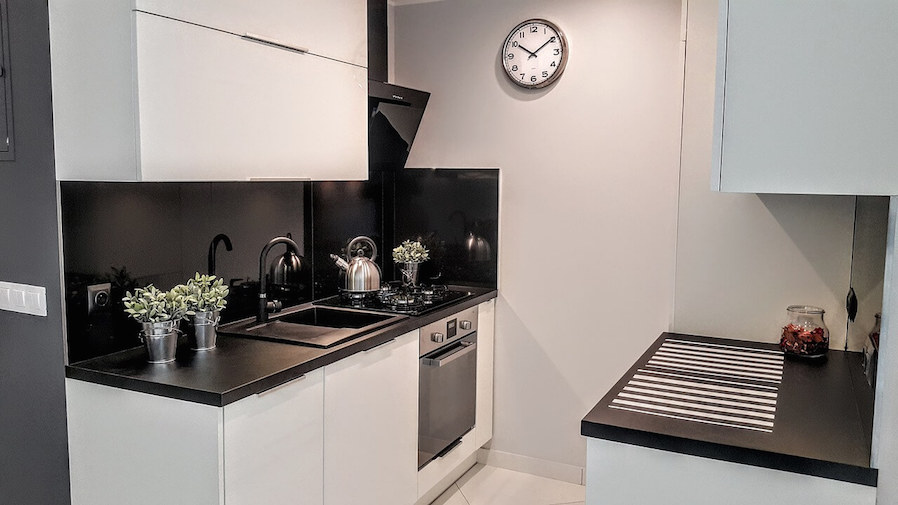Condo sharing can be a wonderful experience. For one, you get to save money while living in a well-appointed space of DMCI properties. It can also feel safer and more convenient because a housemate can provide support and company.
However, tension can easily build up in a shared condo for rent if you don’t properly address the issues. From rent payment to noise management, rules are vital to ensure a healthy living environment. Practice these 8 practical rules when co-sharing a condo lease.
1. Determine the type of tenancy

Photo courtesy of Gianne Karla Tolentino via Pexels
Before moving in a shared condo for lease and welcoming a new roommate, it’s important that all parties determine the type of arrangement and agree on the terms. Remember that not all tenancies are the same. Co-tenancy is a common arrangement where two or more housemates sign the same lease. In other cases, each tenant signs an individual agreement with the landlord. A third type is where a tenant is subleasing part of the condo to another tenant. In all these cases, it’s crucial that the landlord knows and approves of the arrangement. Even if you’re sub-leasing the condo, your landlord may want to look at the prospective tenant’s rental history, references, and so on.
2. Be on time with all the payments

Photo courtesy of nattanan23 via Pixabay
Nothing can sour a shared condo living arrangement more than failing to pay on time. It is the contractual obligation of all tenants to be on time with all payments, from rent to utilities. Chronic late payments is one of the top reasons why housemates part ways. Late payment is more than an uncomfortable situation: all parties can face eviction if one tenant is always behind in paying monthly dues.
When dealing with late payment, it’s important that you approach your co-tenant gently. Avoid coming off as accusatory as this will make it tougher for you to discuss resolutions. Also, establish and agree on an arrangement that doesn’t lay the burden of collection to one person. For example, consider depositing payments to a third-party bank account.
3. Cleanliness is always a must

Photo courtesy of renthouse via Pixabay
Maintaining a clean space is one of the biggest challenges in a shared condo living in the Philippines. For one, everyone has a different sense of what's clean and what’s messy. Also, some tenants who are new to the arrangement may not be used to cleaning and keeping things in order. Address the problem before the situation breeds resentment. Create a cleaning roster for common spaces such as the kitchen and bathroom. You can also consider pooling funds to hire a cleaner.
4. No visitor should overstay their welcome
Waking up to see a stranger sleeping on the living room couch can ruin anyone’s morning. Whether it’s family, friends or a romantic partner, you need to establish clear guest rules. When and how often can visitors stay over? A day? A weekend? Make sure you and your co-tenants have a clear understanding of how long a guest can be around. Even the most polite guest can feel like a major intrusion to a co-tenant who is in the middle of finals or beating a work deadline. When it comes to holding parties, talk to them before and after the event just in case they have something to say about it.
5. Assume total responsibility for your pet

Photo courtesy of tranmautritam via Pixabay
While studies show that having a pet can help you live longer and happier, conflict with your co-tenant can arise if you’re not strict about your responsibility. Owning a pet in a condo can be demanding, and it can be tempting to ask your housemate for help. However, overloading your housemate with your responsibilities can lead to a lot of problems. Assume 100% responsibility for taking care of your pet. Even if your housemate has allowed you to keep a pet, don’t expect that you can be careless about your housemate’s comfort level.
6. Establish food and eating rules

Photo courtesy of Pixabay via Pexels
Failing to establish food and eating rules with your co-tenant can leave both of you hangry, that is, hungry and angry. If you and your co-tenant like communal meals, consider arranging a cooking and shopping roster. This can be a good way to save time and effort. Buying in bulk instead of buying all your food individually can also come out cheaper. While you’re totally allowed to splurge on food, be sure to inform your housemate which food item is off-limits. This rule also works the other way around. If you see something enticing in the fridge, ask your roommate first before digging in.
7. Decorate your condo to minimize noise

Photo courtesy of ponce_photography via Pixabay
Noise can travel fast in a condo. If your co-tenant is noisy, say, with their music, a quick chat preferably during the day can effectively address the situation. However, some noise problems are more challenging. For instance, what if your housemate snores? Or, what if you’re bothered by the clicking sound while your co-tenant is working on their computer late at night? Strategically decorating your condo with your co-tenant is a good solution to minimize noise. Try layering doors with upholstery fabric or a decorative tapestry. Because sound bounces off flat surfaces, the more you cover, the quieter the space will be.
8. Respect your co-tenant’s space and belongings

Photo courtesy of sweetlouise via Pixabay
When two or more individuals live together, a negative situation can quickly develop if the parties involved don’t respect each other’s personal space and belongings. It’s important to respect not just your co-tenant, but also their possessions. A golden rule of shared living is always ask when borrowing. Asking is a way of telling your co-tenant that you respect them and their things. It’s also important that you do not let your things spill over to your co-tenants space, whether it’s the kitchen cabinet or their bedroom.
Sharing a condo with a co-tenant has its challenges, but following these 8 ground rules for condo roommates will help you keep a harmonious living space. Shared living requires flexibility, compromise, and understanding. With the help of these rules, you can fully enjoy the best of shared condo living.










